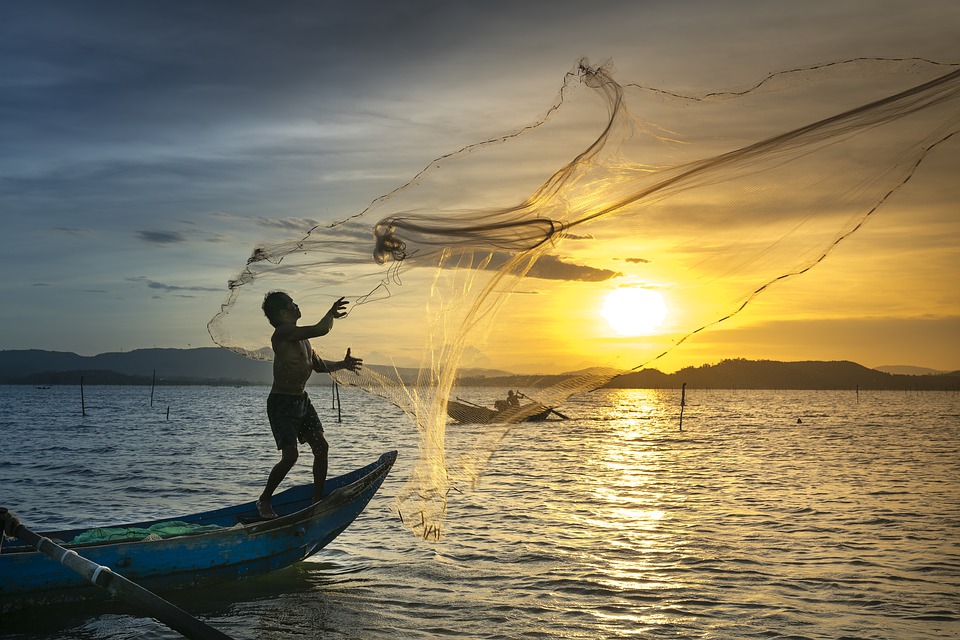Philippine News
Scientists cite solutions to arrest alarming fisheries decline

Pauly said such decline is from relentlessly increasing pressure on the world’s fish stocks, as fishing activities continue to expand globally. (Pixabay photo)
MANILA— Marine biologists have raised the urgency to improve global marine conservation and protection, citing possible food insecurity due to overfishing, environmental decay, and climate change.
“The world’s fish catch is declining,” internationally renowned fisheries scientist and University of British Columbia (UBC) professor Dr. Daniel Pauly warned in a forum at the Seda Vertis North Hotel on Friday.
Pauly said such decline is from relentlessly increasing pressure on the world’s fish stocks, as fishing activities continue to expand globally.
“We’re also fishing deeper and deeper,” he added.
“We cannot let fishery resources continue to be overfished; this endangers our food security, both in the short term and in the long term, because overfishing also demolishes the ecosystems within which these resources are embedded,” he said.
Filipino scientist Dr. Ma. Lourdes Palomares also talked at the forum, saying more than half of the world’s fishery stocks are already either exploited or collapsed.
Palomares is a project director at “Sea Around Us,” a research initiative at the University of British Columbia that assesses the impact of fisheries on the world’s marine ecosystems.
She noted the world’s increasing demand for marine products has been depleting current stocks.
Marine ecologist and Mundus Maris president Dr. Cornelia Nauen cited plastics pollution in marine waters as helping exacerbate the threat
to fisheries resources.
Ten major rivers account for 88 percent to 95 percent of marine plastics, Nauen noted. These are: the Yangtze, Indus, Yellow, Hai He,
Nile, Ganges, Pearl, Amur, Niger, and Mekong.
“We can stop pollution at source,” she said.
Warming ocean waters due to climate change is causing a shift in fisheries species distribution and composition worldwide, UBC Institute
for the Oceans and Fisheries associate professor Dr. William Cheung mentioned at the forum.
Cheung noted such warming is driving fish stocks towards Earth’s poles.
There is a high concentration of species moving away from the tropics amid the warming, he continued.
About half of fish catch can be lost due to inaction on or a business-as-usual approach to climate change, he warned.
Benefits of addressing climate change will be “particularly high” in the tropics, he said.
Pauly also sees the need to update fish catch data, so countries can better assess global fisheries and identify conservation and protection
measures for their respective fishery resources.
Potential local protection and conservation measures include restoring coastal vegetation, Cheung added.
Gloria Ramos, vice president of ocean-focused advocacy group Oceana Philippines, urged the country’s public and private sectors to unite on nationwide marine protection and conservation.
“We can make our oceans healthy,” she said at the forum.
She added communities nationwide must continue collaborating with stakeholders concerned and engage in assessing and evaluating
authorities’ performance in coastal and marine protection.
Communities must act to ensure sustainable management of Philippine fisheries, she said.
Oceana earlier recommended several measures for helping protect and conserve Philippine fishery resources.
Among the recommendations was issuing a Bureau of Fisheries and Aquatic Resources-Department of Interior and Local Government joint
administrative order enjoining LGUs and law enforcement agencies to enforce a total ban on using bottom trawls in municipal waters, bays, and
other fishery management areas. At the same time, Oceana Philippines recommended providing displaced municipal fishers with legitimate fishing gears or alternative livelihood and credit opportunities.
The group said bottom trawls are highly efficient but damage the marine environment.
Oceana also recommended establishing a scientific advisory group that will review bottom trawls’ biological and environmental impacts.
The recommendations likewise include further studies on such gear’s impacts on areas where municipal and commercial trawls operate.
Minimizing bottom trawls’ damage will help increase fisheries productivity in the country, Oceana said.





















